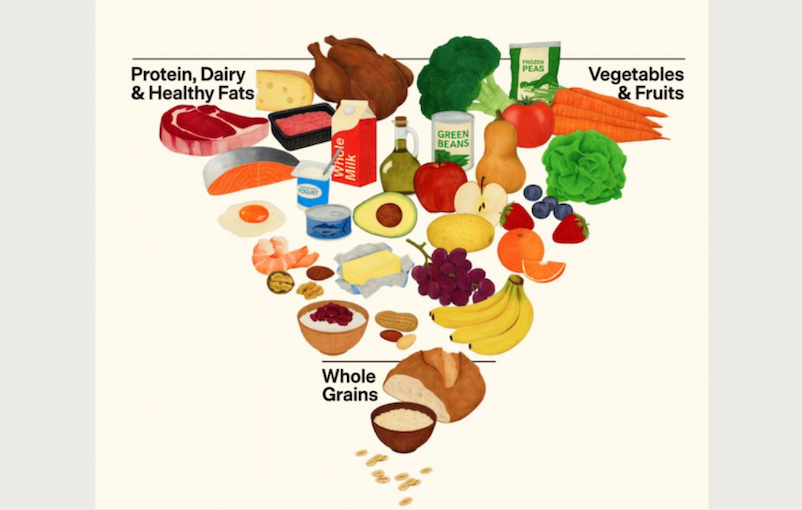When Should I Take a Probiotic Supplement?
Probiotics are living microorganisms that can provide health benefits when consumed. Learn when it's the best time to take probiotics and the benefits.

A primary care membership for patients who want more. Primary Care. Nutrition. Wellness. All under one roof.
Probiotics have gained popularity in recent years, as people have become more aware of the importance of gut health. Probiotics are live microorganisms that are beneficial for our digestive system and overall health. They are found in certain foods and supplements and have been linked to aiding in a myriad of health issues—from IBS to inflammation to immunity.
Let’s dive into some of the most frequently asked questions about probiotics, including what they are, what they are used for, common types of probiotic bacteria, the best time to take probiotics, when to avoid taking them, the best probiotic supplements, and their benefits.
What are probiotics?
Probiotics, put simply, are live microorganisms that naturally occur in our bodies. They are often referred to as “good” or “friendly” bacteria because they help to keep our digestive system healthy and balance out the harmful bacteria.
Probiotics can be found in a variety of different foods, including yogurt, kefir, kimchi, sauerkraut, and kombucha. They are also available in supplement form (capsules, tablets, and powders).
Probiotics are made up of a variety of different strains of bacteria and yeasts that naturally live in the body, each with their own unique health benefits. These microorganisms work by helping to balance the “good” and “bad” bacteria in our gut, which can become unbalanced due to poor diet, stress, antibiotics, and illness.

What are probiotics used for?
Probiotics are used to support gut health and overall health. They have been linked to a range of health benefits, including improved digestion, enhanced immune function, reduced inflammation, and better mental health. Probiotics are commonly used to treat a variety of digestive issues like irritable bowel syndrome (IBS), inflammatory bowel disease (IBD), and diarrhea, caused by antibiotics or infections.
As for their impact on mental health, studies have shown that the gut-brain axis plays an important role, and probiotics may help to support this connection. Probiotics have been shown to reduce symptoms of depression and anxiety in some studies, although more research is needed in this area.
When is the best time to take probiotics?
The timing of when you take probiotics can have an impact on their effectiveness. Here are some of the recommended time of days to take probiotics:
- First thing in the morning: Taking probiotics right when you wake up on an empty stomach can be a good way to jumpstart your digestive system. This can help ensure that the probiotics are able to survive the journey through your stomach and make it to your gut.
- With a meal: Taking probiotics with a meal can help protect them from stomach acid and enzymes, which can be harsh on the delicate bacteria. Additionally, taking probiotics with a meal can help ensure that they are able to mix with the food in your stomach and make it to your gut.
- Before bed: Taking probiotics before bed can be a good way to give your gut an extra boost while you sleep. This can help improve digestion and reduce inflammation while you rest.
The best time to take probiotics can vary from person to person and the specific probiotic strain. It’s always a good idea to consult with your Lanby Care Team before starting any new supplement regimen.

When to avoid taking probiotics
While probiotics are generally safe for most, there are certain situations where you should avoid taking them. These include:
- If you have a weakened immune system: People with weakened immune systems, such as those with HIV/AIDS, cancer, or who are undergoing chemotherapy, should avoid taking probiotics. This is because the live bacteria in probiotics can pose a risk of infection.
- If you are taking other medications such as antibiotics: Antibiotics can kill both bad and healthy bacteria, which can disrupt the balance of the gut microbiome. It is recommended to wait at least two hours after taking antibiotics before taking probiotics to avoid any interference with the effectiveness of the antibiotics.
- If you are allergic to the ingredients in probiotics: Some probiotic supplements may contain ingredients that can cause allergic reactions in some people, such as milk or soy. It is important to read the label carefully and check with your healthcare provider if you have any allergies.
- If you have a medical condition: People with certain health conditions, such as inflammatory bowel disease, should consult with their care team before taking probiotics.
Again, we always recommend that you consult with your care team to find the probiotic that is right for you.
The best types of probiotic supplements
There are many different types of probiotic supplements available on the market, each with its own unique strain of microbes. The best type of probiotic supplement for you may depend on your individual needs and health goals. Some of the most popular types of probiotic supplements include:
- Lactobacillus acidophilus: This is one of the most common probiotic strains and is found in many yogurts and other fermented foods. It is known to support gut health and boost the immune system.
- Bifidobacterium lactis: This strain of probiotic is commonly found in the large intestine and is known to help improve digestion, boost the immune system, reduce inflammation, and support overall gut health.
- Saccharomyces boulardii: This is a yeast-based probiotic that can help reduce diarrhea caused by antibiotics and infections.
- Lactobacillus rhamnosus: It’s the most commonly used probiotic strain and is found in yogurt and other fermented dairy products. It is known to help support gut health, boost the immune system, reduce inflammation, and reduce symptoms of allergies.
- Streptococcus thermophilus: This probiotic strain is commonly found in fermented dairy products and is known to help support gut health and boost the immune system.
How to choose the right probiotic
When it comes to choosing a probiotic supplement, there are a few things to consider. Here are some tips to help you find the right probiotic for you:
- Look for a high-quality supplement: It’s important to choose a probiotic supplement that is high-quality and contains the strains of bacteria that you need. Look for a supplement that is made by a reputable manufacturer and has been tested for purity and potency.
- Consider the strain of bacteria: There are many different strains of probiotics, each with their own unique benefits. Consider the specific strain of microbes that you need based on your personal health goals.
- Check the CFUs: CFUs, or colony-forming units, are a measure of the number of live bacteria in a probiotic supplement. Look for a supplement with at least 1 billion CFUs per serving.
- Look for a supplement with prebiotics: Prebiotics are a type of fiber that feeds the good bacteria in your gut. Look for a probiotic supplement that also contains prebiotics to help support the growth of the beneficial bacteria in your gut.
- Choose a supplement that is shelf-stable: Some probiotic supplements require refrigeration to maintain their potency. If you are looking for a more convenient shelf-stable option then make sure to inspect the packaging, since a variety of factors like heat, moisture, and light can erode the quality of your probiotics. Find packaging that minimizes exposure to these factors by using an opaque, glass bottle or canister.
At The Lanby, Care Teams personalize recommendations of supplements for our patients. Our dietitian highly recommends the probiotics from Sakara, Seed, and Ritual.
The benefits of probiotics
Probiotics have been linked to a range of health benefits, including:
- Improved Digestion: Probiotics can help improve digestion by balancing the bacteria in the gut and reducing symptoms of digestive disorders such as irritable bowel syndrome (IBS). Research shows that they can also help relieve constipation and bloating.
- Enhanced Immune Function: By reducing inflammation and supporting the production of antibodies, probiotics can help boost the immune system.
- Reduced Inflammation: Probiotics have been shown to have anti-inflammatory effects, which can help reduce inflammation throughout the body.
- Better Mental Health: The gut-brain axis plays an important role in mental health, and probiotics may help support this connection. Probiotics have been shown to reduce symptoms of depression and anxiety in some studies.
- Improved Heart Health: Some studies have suggested that probiotics may help lower cholesterol levels and reduce the risk of heart disease.
However, remember what the bottom line is: Maintaining a healthy gut is about more than taking a probiotic supplement. Day-to-day diet, incorporation of probiotic rich foods, and exercise should be your first tactics to improve your gut health.
Be sure to talk to your Wellness Advisor first to make sure you’re trying the correct probiotic for your body, gut, and well-being.
The Lanby is a primary care membership for patients who want more. Book a free consult!

If you're curious to learn more about The Lanby, book a free consult call and we'll chat about how The Lanby can be your personalized long term health and wellness partner.

Kendall is a graduate of the University of Mississippi, with a B.A. in Integrated Marketing Communications and a minor in Business Administration. She received her certificate of Nutrition Science from the Friedman School of Nutrition at Tufts University.

Chloe holds a bioengineering degree from the University of Pennsylvania. As a breast cancer survivor, her insights shape The Lanby's patient-centric approach. Leveraging her healthcare strategy background, Chloe pioneers concierge medicine, bridging gaps in primary care.

Tandice was recognized with the Health Law Award and named a Ruth Bader Ginsburg Scholar at Columbia Law School. Tandice's editorial role is enriched by her insights into patient autonomy and gene modification legalities. Passionate about bioethics, she is committed to crafting patient-centric healthcare solutions.





